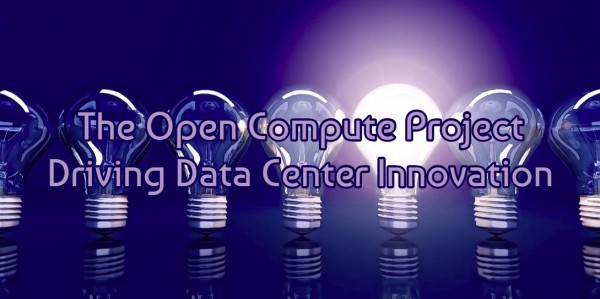The Open Compute Project (OPC) holds its 5th annual summit this week in San Jose, CA. The project is focused on optimizing data centers so that they are more powerful, more efficient, and to integrate new capabilities. One way this is accomplished is through designing interoperability into data center components. But OPC has achieved several additional things on its way toward these goals.
OCP’s accomplishments include:
- Having sparked a dialogue between the most influential data center firms
- Inspiring HP’s launch of a white-box option to cater to Open Compute participants
- Shedding new light on research and development possibilities for software-defined networking and storage methods in corporate data centers
- Inspiring major hardware vendors to use innovative designs in their data centers
- Being credited with inspiring the hyper-converged system movement, which revolves around a single box that offers networking, storage, and information processing
But OCP’s greatest accomplishment is that it has changed the way we think about data center hardware, vendors, and their customers. OCP has influenced many vendors to adopt new advanced concepts in part and passing the benefits along to their customers. As a result, OCP has made hardware infrastructure more open and less likely to isolate a given user with an irresolvable problem.

Companies Growing Under the Light of Collective Innovation
It could be argued that without OCP, a company like Cisco- for example- wouldn’t have advanced systems like their Application Centric Infrastructure and their advanced hybrid data center deployment capabilities. Cisco joined OCP in 2014, and since then they have contributed and learned a great deal.
Most vendors have acknowledged that their hardware systems have to interconnect and be more open in order for theircapabilities to grow and remain competitive. OCP’s influence has had everything to do with that approach.
All of this innovation has sparked a new endeavor for OCP: Converged infrastructure promise without lock-in. To support this effort, Facebook has announced that it wants to streamline 5G the same way it has already done to their own data center. To help organize this endeavor, OCP will enlist AT&T and Verizon to develop telecommunications support networks. Microsoft will contribute by demonstrating its Linux-based Azure Cloud Switch operating system while Facebook reveals its S.O.C, open hardware, and a software based solution framework for high capacity data centers.
This year’s OCP conference will feature such heavy hitters such as the Facebook creation, Open-Rack architecture, software defined storage, APIs for networking systems, new firmware standards, power management improvements, and High-Performance Computing clusters.
To put it simply, OCP is enabling major corporations of all kinds to take control of their technological resources in ways that they would probably never be able to imagine otherwise.
The Open Compute approach hasn’t yet produced any huge sellers on the mainstream consumer market- and that would be a bonus- but OCP doesn’t have to lead to the successor to the iPhone to be a success. It only needs to keep doing what it’s doing- promoting higher standards of operation for companies that already have commercially successful products.
Katrina is a leader in the IT industry with innovative ideas and custom solution as a product specialist for Rack Solutions.
